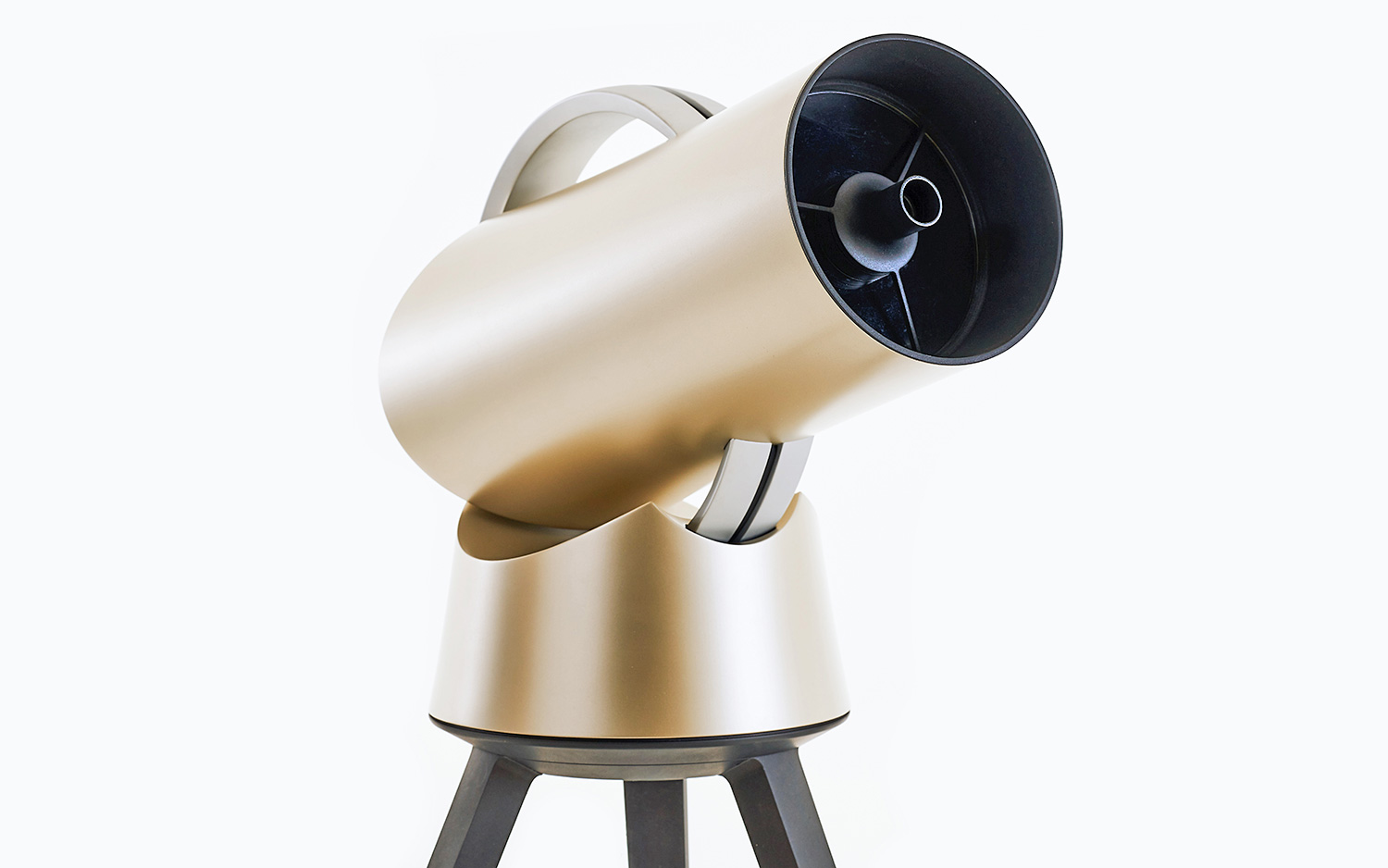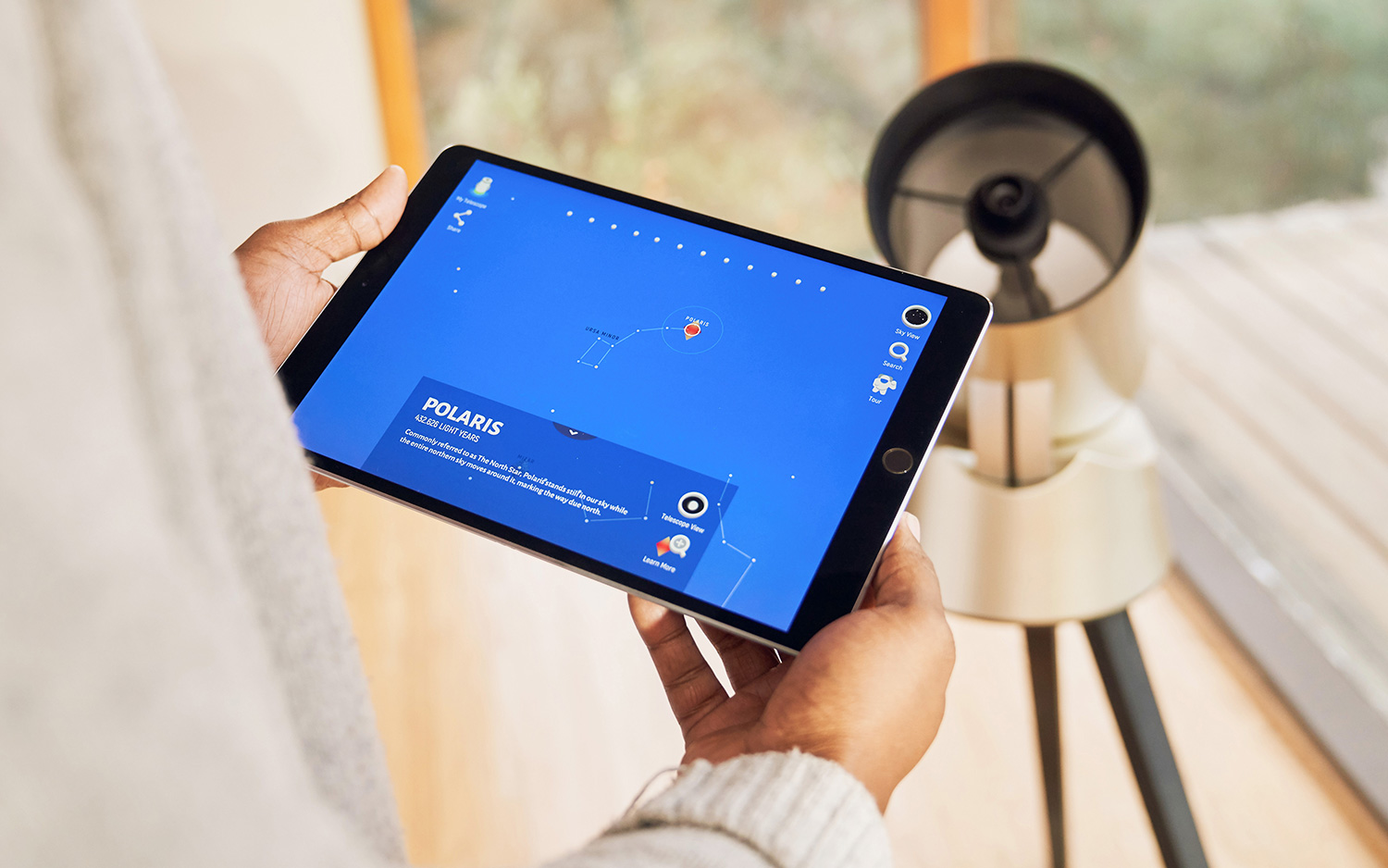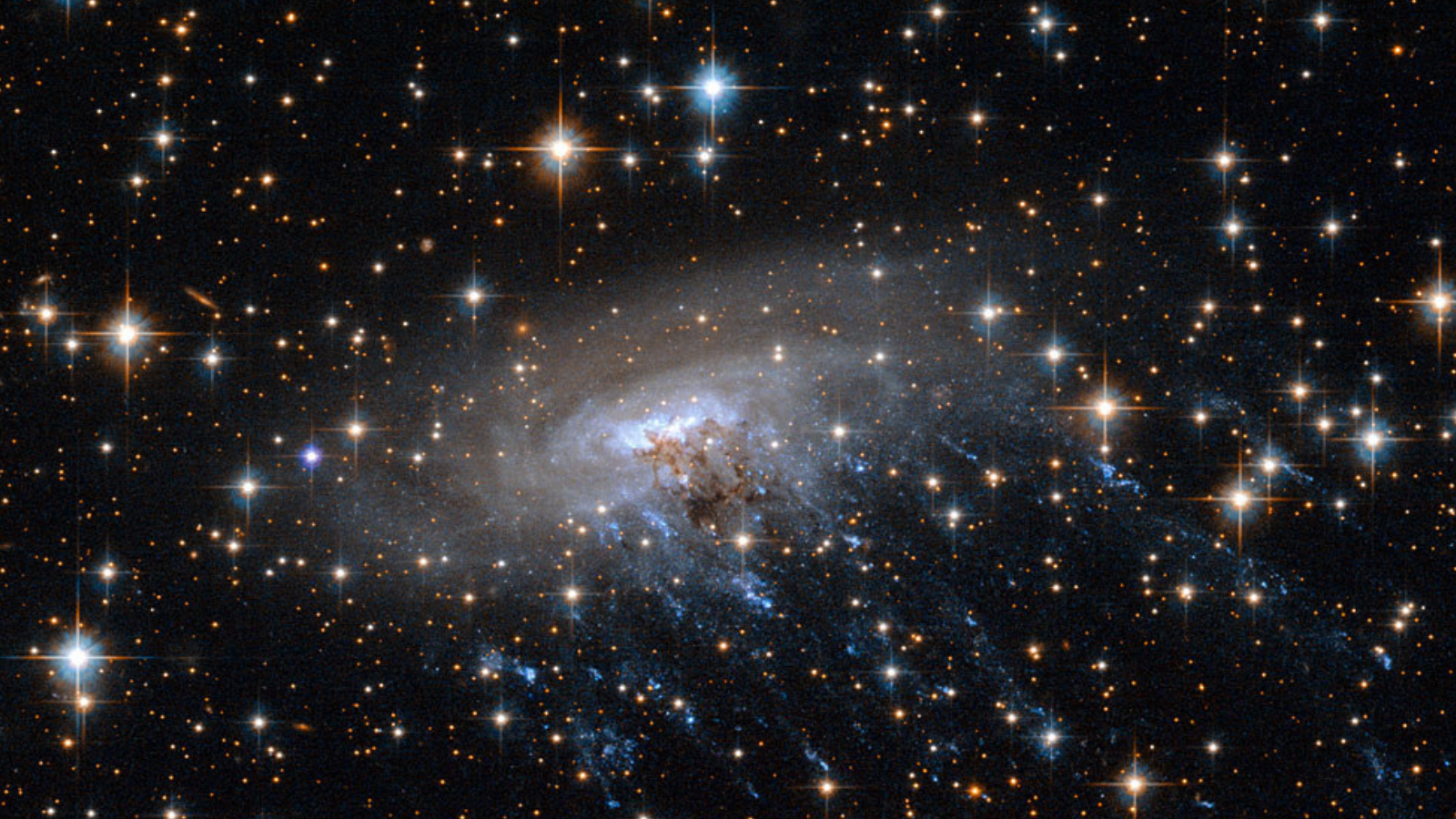Hiuni's New 'Smart Telescope' Pairs with Mobile Devices to Stargaze
Breaking space news, the latest updates on rocket launches, skywatching events and more!
You are now subscribed
Your newsletter sign-up was successful
Want to add more newsletters?

Delivered daily
Daily Newsletter
Breaking space news, the latest updates on rocket launches, skywatching events and more!

Once a month
Watch This Space
Sign up to our monthly entertainment newsletter to keep up with all our coverage of the latest sci-fi and space movies, tv shows, games and books.

Once a week
Night Sky This Week
Discover this week's must-see night sky events, moon phases, and stunning astrophotos. Sign up for our skywatching newsletter and explore the universe with us!

Twice a month
Strange New Words
Space.com's Sci-Fi Reader's Club. Read a sci-fi short story every month and join a virtual community of fellow science fiction fans!
Meet Hiuni, a shiny new "smart telescope" that takes all the work out of amateur astronomy.
If you're new to telescopes — or a seasoned stargazer looking for a lazier way to enjoy your hobby — this smart telescope, which launched on Kickstarter Tuesday (May 8), may be one of the easiest ways to scope out the cosmos.
No idea how to find Polaris? No problem! This telescope will find whatever you want to look at on its own. All you need is a tablet or smartphone and the Hiuni app. The telescope uses self-guided navigation and can calibrate itself, so users can just turn it on, kick back and explore the universe from touch-screen mobile devices. [Best Telescopes for Beginners]
While traditional telescopes have eyepieces, the only way to "see" with this telescope is through a screen. Some astronomers may consider this a drawback, because you can't see the light from celestial objects with your own eyes — only on an electronic display. On the other hand, the mobile app is easier for kids, who sometimes have difficulties using an eyepiece.
"Everyone remembers that first time they looked through a telescope as a child," Hiuni founder and CEO Jack Chen said in a statement. "We set out to recreate that feeling for the connected generation and breathe new technological innovation into a centuries-old invention."
The app provides more than just a digital analog to an eyepiece. It also features an interactive sky map and several educational activities, like tours of the night sky, astronomy games and challenges that unlock special content. Skywatchers can also use the app to capture and share photos (with an image resolution of 1,280 by 1,024 pixels).
The telescope itself has a Cassegrain-style design with an altitude-azimuth mount, a 152.44-millimeter aperture and a 1,544-mm focal length. It connects to your phone or tablet with its own local wifi network or through your home wifi network.
Breaking space news, the latest updates on rocket launches, skywatching events and more!
Hiuni is not yet available in stores, but you can preorder it for a huge discount through Hiuni's Kickstarter campaign, which has already exceeded its $50,000 fundraising goal by a long shot. You can reserve one today for $489, which is 59 percent off the full retail price of $1,190. That deal ends on May 11 at 11 a.m. EDT (1500 GMT). Those who pledge to the Kickstarter campaign will receive their telescopes by June 2019. Even at full price, Hiuni costs less than half as much as the Stellina smart telescope, which goes on sale this month.
Email Hanneke Weitering at hweitering@space.com or follow her @hannekescience. Follow us @Spacedotcom, Facebook and Google+. Original article on Space.com.

Hanneke Weitering is a multimedia journalist in the Pacific Northwest reporting on the future of aviation at FutureFlight.aero and Aviation International News and was previously the Editor for Spaceflight and Astronomy news here at Space.com. As an editor with over 10 years of experience in science journalism she has previously written for Scholastic Classroom Magazines, MedPage Today and The Joint Institute for Computational Sciences at Oak Ridge National Laboratory. After studying physics at the University of Tennessee in her hometown of Knoxville, she earned her graduate degree in Science, Health and Environmental Reporting (SHERP) from New York University. Hanneke joined the Space.com team in 2016 as a staff writer and producer, covering topics including spaceflight and astronomy. She currently lives in Seattle, home of the Space Needle, with her cat and two snakes. In her spare time, Hanneke enjoys exploring the Rocky Mountains, basking in nature and looking for dark skies to gaze at the cosmos.


